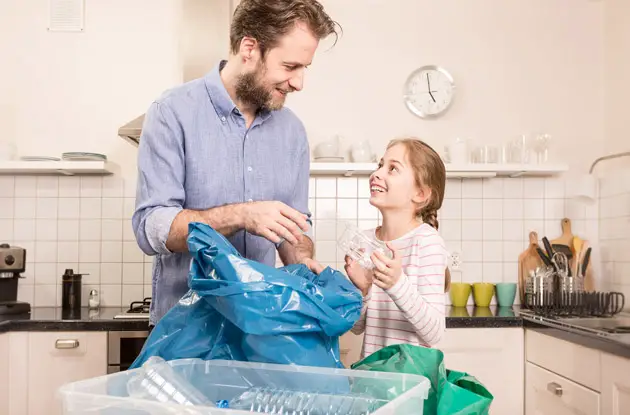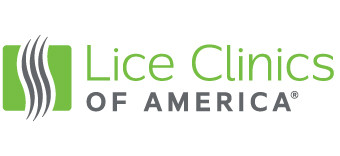
How to Become a Zero-Waste Household
Here’s how to make the green movement of limiting the amount of trash your family creates work for your household.
Get kid-friendly activities sent to you!
Get the Best Family Activities
“Zero waste becomes a lifestyle—not a short-term project—when you let it simplify your life, not complicate it,” Johnson says. “It’s all about finding super-simple solutions that you can see yourself sticking to for life.”
In her book, Johnson introduces five zero-waste rules: refuse, reduce, reuse, recycle, and rot. Read on to discover how to implement them, as well as further tips to get you started.
Refuse what you do not need, especially single-use items. Say no to the plastic bag, coffee cup, plastic fork, freebie pen, hotel shampoo, and toy at the dentist. This simple step will drastically reduce the waste you are bringing into your home. Then you can start working on what is already there.
Reduce your belongings to make you more aware of what you are bringing into your home. Do you need three different types of moisturizer? Do you have a full closet but keep buying clothes? Do your kids play with all of their toys or could you donate some? Go slow and start with easy areas. You can then see where you need to make zero-waste swaps.
Switch to reusables. Bring a reusable coffee cup to the coffee shop, a lunch box to work, a handkerchief in your bag, and reusable bags to the grocery store. You don’t have to spend a lot of money to do this, just use what you have at home. Make produce bags and handkerchiefs out of old sheets and use glass jars to transport your lunch or wet food like meat and cheese from the store. Need to buy something? Reuse by buying second hand items.
Go slow to avoid burn out and overwhelm. Ristow recommends replacing items one at a time, for a more sustainable change. “Start small, and start where you can make a big impact,” she says. “You don’t have to change everything at once. You’ll feel really good when you notice your small changes making a difference, which will motivate you to keep going.”
Recycle correctly. Don’t just put it all in and hope for the best. Approximately 77 percent of New Yorker’s trash could be recycled, donated, or composted instead, according to the New York City Department of Sanitation. Read your borough’s recycling rules carefully to avoid contaminating your collection (causing it to end up in landfill). NYC has an excellent program in place. With a little research you can find a home for most things, even if they can’t be left at the curb.
Rot what you can’t recycle, reuse, or refuse. The simple act of composting will reduce your trash by 34 percent and you don’t need a garden to do it. Visit grownyc.org for more information about local collection and drop-off locations.
Shop at a farmer’s market, which is a great way of reducing waste. You’ll buy more fresh produce, support local farms, and you can bring your own bags and containers. There are more than 50 farmer’s markets in NYC, visit grownyc.org or downtoearthmarkets.com to find one near you.
Buy unpackaged foods. Once you get started, you’ll realize there are lots of options you aren’t using. Check out the bulk aisle of your local health food or grocery store, go to the bakery for your bread and cookies, get meats and cheeses from the deli counter, and stock up on lunch items at the salad bar. In some cases, you’ll even save money doing this. Find a bulk store near you with the Bulk Finder tool on zerowastehome.com.
Switch cleaning and beauty products. You don’t need five different cleaners and rolls of paper towels for a clean house. All you need is baking soda, vinegar, some soap, and old rags. In the bathroom you can switch to soap bars and refillable shampoo. There are now many companies offering refillable, package free products such as Brooklyn’s own Package Free Shop, set up by zero-waste blogger Lauren Singer of trashisfortossers.com.
Focus on what’s important. “People think [zero waste] is about reducing your trash, but ultimately it actually translates into a simpler life: a life that is based on experiences instead of things and a life focused on being rather than having,” Johnson says. “For us, that’s what makes life richer.”
The zero-waste lifestyle movement began in one woman’s kitchen in California and has grown into something with the power to influence corporations. In May 2019, eight of the biggest plastic polluting companies in the world, including Procter & Gamble and Unilever, will start trialing a new venture called LOOP, in which their products are shipped to consumers in refillable packaging that they then return. The future, we hope, is zero waste.








